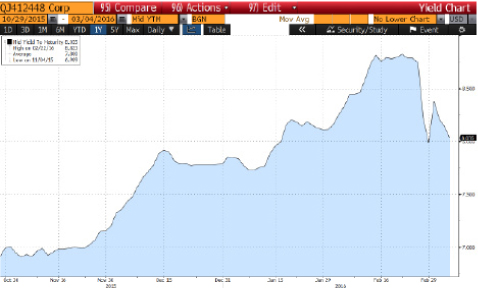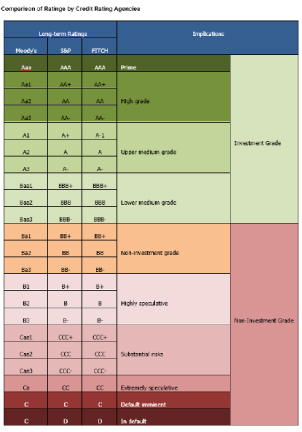Economy needs robust reforms for growth - Ravi Abeysuriya
by Chandani Jayatilleke
|

Ravi Abeysooriya |
Sri Lanka needs to attract a significant amount of foreign direct
investments and increase exports to build the foreign reserves; that
will help the country get a rating upgrade, said Director and Chief
Executive Officer, Candor Equities Limited, Ravi Abeysuriya,
In an interview with the Sunday Observer following the Fitch
downgrade of the sovereign rating on February 29, he said the government
will have to move fast. “It urgently needs to make a strong effort to
reduce the general government debt which is around 75% of GDP now and
narrow the fiscal deficit by broadening the government revenue base and
put public finances on a sustainable path for a rating upgrade,” he
said.
Abeysuriya who is also the President of the Colombo Stockbrokers’
Association (CSBA) said the success of the government implementing
long-overdue predictable and robust policy reforms are, however, in the
midst of current political undercurrents, yet to be seen.
Excerpts:
Question: What does Fitch downgrade means for Sri Lanka at
this juncture?
Answer: Fitch Ratings downgraded Sri Lanka’s sovereign rating
by one notch from BB- to B+ with a negative outlook. The negative
outlook implies there is a probability of the credit rating being
further downgraded in the future.
According to the Fitch, the country’s increasing external
vulnerability (weaker foreign reserves, significant foreign debt
servicing commitments) and weaker fiscal consolidation are the main
factors for the rating downgrade.
Moody’s and S&P already have a B1/Stable and B+ ratings respectively
for Sri Lanka. For now, Sri Lanka’s credit rating is in the same rating
level within the ‘High Speculative’ risk category from all three rating
agencies as shown in the chart. (See page 47 for two charts)
 Credit rating reflects the ‘credit worthiness’ or capacity of Sri
Lanka to meet debt commitments. A downgrade of Sri Lanka’s credit rating
is a signal that there may be greater risks for investors when investing
in Sri Lanka. As shown in the graph below investors were attributing a
greater risk premium for Sri Lanka’s sovereign bond issues before the
Fitch downgrade, which means the increasing macroeconomic risks were
already factored in the bond yields. Credit rating reflects the ‘credit worthiness’ or capacity of Sri
Lanka to meet debt commitments. A downgrade of Sri Lanka’s credit rating
is a signal that there may be greater risks for investors when investing
in Sri Lanka. As shown in the graph below investors were attributing a
greater risk premium for Sri Lanka’s sovereign bond issues before the
Fitch downgrade, which means the increasing macroeconomic risks were
already factored in the bond yields.
Question: How bad is it for a country’s rating to be
downgraded?
Answer: This would be negatively impacted for the country’s
portfolio flows and international market access for sovereign bond
issues. This means Sri Lanka will have to pay a slightly higher risk
premium for future sovereign bond issues. In other words; Sri Lanka will
incur a higher cost for commercial borrowing from global capital
markets, in the future.
However, if Moody’s and S&P downgrade as well, it will prove more
costly as Sri Lanka will move further down in the rating scale to B
category.
Following a sovereign downgrade, financial institutions and
corporates in Sri Lanka that are at the sovereign ceiling are generally
downgraded, while firms below the sovereign bond are not necessarily
downgraded. Moreover, bond firms are downgraded not because of a
deterioration of their fundamentals, but simply because of the sovereign
ceiling. The sovereign rating downgrade generated a significant stock
market reaction with the ASPI declining 78 points on March 1 itself. So
the direct impact of the downgrade will be felt in the bond and fixed
income market, with a secondary shock in currency and then finally in
equities.
 Question: How will the downgrade affect foreign and local
investor sentiment? Question: How will the downgrade affect foreign and local
investor sentiment?
Answer: Yes, a downgrade may lead to sentiment driving nervous
investors to sell out government bonds and equity investments of Sri
Lanka deemed to be riskier. When it comes to domestic government bonds,
certain investors may sell these bonds.
This could have a knock-on impact causing local interest rates to
increase and stabilise around a new level that makes them attractive to
investors. This increase in yields potentially could lead to a capital
loss on the sale of the bond in the short term and increased volatility
for an asset class that most investors seem to be ‘rather safe’.
Question: In your opinion what should the government do to get
the rating upgraded?
Answer: Sri Lanka faces significant foreign debt maturities in
2016 due to excesses in the past with debt service commitments of USD 4
billion in 2016 with only USD 6.3 billion reserves in hand at present.
For a rating upgrade, Sri Lanka will have to work hard to attract a
significant amount of FDIs and increase exports to build the foreign
reserves.
The government urgently needs to make a stronger effort to reduce the
general government debt which is around 75% of GDP now and narrow the
fiscal deficit by broadening the government revenue base and put public
finances on a sustainable path for a rating upgrade.
The success of the government implementing long-overdue predictable
and robust policy reforms are, however, in the midst of current
political undercurrents is yet to be seen. |

